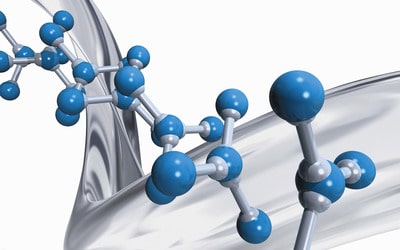how to inject PET preform
PET chemical name is polyethylene terephthalate, also known as polyester. At present, GF-PET is the most used among customers, mainly for preform injection.
The rheology of PET in molten state is better, and the effect of pressure on viscosity is greater than temperature. Therefore, the fluidity of the melt is mainly affected by pressure.

Due to the presence of lipid based PET molecules, and it has a certain hydrophilicity, the pellet is sensitive to water at a high temperature. When the moisture content exceeds the limit, the molecular weight of the PET decreases during processing, and the product is colored and brittle.
In this case, the material must be dried before processing, and the drying temperature is 150 ° C, more than 4 hours, generally 170 ° C, 3-4 hours.
The proportion of recycled materials should not exceed 25%, and the recycled materials should be thoroughly dried.
Since PET has a stable time after melting point and a high melting point, it is necessary to use an injection system with more temperature control sections and less friction heat during plasticization, and the actual weight of the product cannot be less than the 2/3 of the one shot amount machine injection.
Based on these requirements, Ramada has developed a small and medium series of PET plasticizing systems in recent years. The clamping force is selected to be greater than 6300t/m2.
The PET preform is generally manufactured by a hot runner mold. It is preferable to have a heat insulator between the mold and the injection molding machine. The thickness of the preform is about 12 mm, and the insulator must withstand high pressure. VENTING must be sufficient to avoid local overheating or air trap, but the depth of the venting slot should not exceed 0.03mm, otherwise it will easily produce flash.
It can be measured by shot-to-air method,the temperature could be set between 270 and 295 ° C.
The enhanced grade GF-PET can be set to 290-315 ° C
Generally, the injection speed is fast, which prevents early coagulation during injection. But too fast, the high shear rate makes the material brittle. The shot is usually completed in 4 seconds.
The lower the back pressure is, the better the injection is , so as not to wear. Generally no more than 100bar.
Do not use excessive residence times to prevent molecular degradation. Try to avoid temperatures above 300 °C. If the shutdown is less than 15 minutes. Only need to be air-blasted; if it is more than 15 minutes, clean it with viscosity PE and reduce the temperature of the barrel to PE temperature until it is turned on again.
(1) The recycled material should not be too much, otherwise it will easily cause "bridge"and affect plasticization.
(2) If the mold temperature is not well controlled or the material temperature is not properly controlled, it is easy to produce "white fog" and opaque.
The rheology of PET in molten state is better, and the effect of pressure on viscosity is greater than temperature. Therefore, the fluidity of the melt is mainly affected by pressure.

- Plastic Processing
Due to the presence of lipid based PET molecules, and it has a certain hydrophilicity, the pellet is sensitive to water at a high temperature. When the moisture content exceeds the limit, the molecular weight of the PET decreases during processing, and the product is colored and brittle.
In this case, the material must be dried before processing, and the drying temperature is 150 ° C, more than 4 hours, generally 170 ° C, 3-4 hours.
The proportion of recycled materials should not exceed 25%, and the recycled materials should be thoroughly dried.
- Injection Molding Machine
Since PET has a stable time after melting point and a high melting point, it is necessary to use an injection system with more temperature control sections and less friction heat during plasticization, and the actual weight of the product cannot be less than the 2/3 of the one shot amount machine injection.
Based on these requirements, Ramada has developed a small and medium series of PET plasticizing systems in recent years. The clamping force is selected to be greater than 6300t/m2.
- Mold and Gate Design
The PET preform is generally manufactured by a hot runner mold. It is preferable to have a heat insulator between the mold and the injection molding machine. The thickness of the preform is about 12 mm, and the insulator must withstand high pressure. VENTING must be sufficient to avoid local overheating or air trap, but the depth of the venting slot should not exceed 0.03mm, otherwise it will easily produce flash.
- the Melting Temperature
It can be measured by shot-to-air method,the temperature could be set between 270 and 295 ° C.
The enhanced grade GF-PET can be set to 290-315 ° C
- Injection Speed
Generally, the injection speed is fast, which prevents early coagulation during injection. But too fast, the high shear rate makes the material brittle. The shot is usually completed in 4 seconds.
- Back Pressure
The lower the back pressure is, the better the injection is , so as not to wear. Generally no more than 100bar.
- Residence times
Do not use excessive residence times to prevent molecular degradation. Try to avoid temperatures above 300 °C. If the shutdown is less than 15 minutes. Only need to be air-blasted; if it is more than 15 minutes, clean it with viscosity PE and reduce the temperature of the barrel to PE temperature until it is turned on again.
- Others
(1) The recycled material should not be too much, otherwise it will easily cause "bridge"and affect plasticization.
(2) If the mold temperature is not well controlled or the material temperature is not properly controlled, it is easy to produce "white fog" and opaque.
Comments
Post a Comment